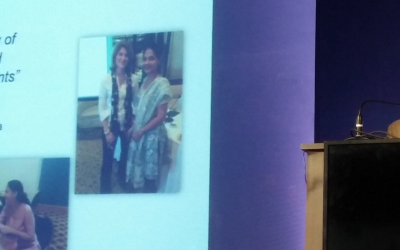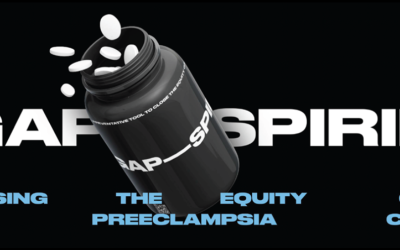
Research Finds Patients Want Better Preeclampsia Prediction and Diagnostic Tools
A research study published this week in BMC Pregnancy and Childbirth with data from the Preeclampsia Registry finds that preeclampsia patients support the need for better prediction, diagnostic, prevention, and treatment options for the deadly hypertensive disorder of pregnancy, which affects 2-8% of all births worldwide each year.
The study found that women with experience of hypertensive disorders were enthusiastic about improved predictive and diagnostic tests. However, varied views about treatment options and expectant management suggested the need for a shared decision-making tool to enable healthcare professionals to support pregnant women’s decision-making to maximize the utility of these tests and interventions.
Generally, preeclampsia is diagnosed in the second or third trimester and up to six weeks postpartum by the presence of high blood pressure readings and signs of organ dysfunction, such as protein in the urine. Treatment for the condition consists of “expectant management,” in which a healthcare provider tries to keep the blood pressure under control and monitors a patient for worsening of symptoms to determine the appropriate timing for delivery of the baby and the placenta. Preeclampsia and other hypertensive disorders of pregnancy are one of the leading causes of premature birth and infant loss.
“For many years, the only option for predicting which patients would develop preeclampsia, has been to go through a list of risk factors, then hope that you’ve correctly identified which patients should be placed on aspirin therapy and/or monitored more closely,” said Preeclampsia Foundation CEO and Preeclampsia Registry Primary Investigator Eleni Tsigas. “Women in the Preeclampsia Registry reflected in this survey that this is simply not good enough.”
Researchers also stratified the data based on whether a participant delivered pre-term or term due to their preeclampsia experience, to see if this altered their perspectives. Interestingly, both pre-term and term patients had similar views on prediction, diagnostics, and treatment, but differed in their views on prevention. Overall, patients who had experienced pre-term delivery due to preeclampsia were far more likely to support statements around low-dose aspirin usage.
Participants’ views varied the most about delivery timing, with the majority of patients supporting the idea of staying pregnant longer to try and “buy more time” for their baby. In general, the data shows that patients prioritized concerns for their babies over concerns for their own health, but reflected in the open-ended comments that their own health was a factor in their decision-making process. This study also corroborated that patients want to understand the full risk of any prevention or treatment, but are willing to participate in research and strongly consider an option if it could mean avoiding some of the worse outcomes related to preeclampsia and other HDPs.
“This study emphasizes the need for better prediction and diagnostic tools for women facing a potential hypertensive disorder of pregnancy,” said Tsigas, “while also reflecting the complexity presented by pregnancy complications in weighing the benefits and risks to the mother and her baby, and benefits that a decision aid might provide.”
About the Preeclampsia Foundation
The Preeclampsia Foundation is a U.S.-based 501(c)(3) non-profit organization established in 2000 to improve the outcomes of hypertensive disorders of pregnancy by educating, supporting, and engaging the community, improving healthcare practices, and finding a cure. We envision a world where preeclampsia and related hypertensive disorders of pregnancy no longer threaten the lives of mothers and babies. For more information, visit www.preeclampsia.org.
It is our collective voice that reduces isolation for others, raises awareness and improves healthcare practices. Let's raise up our voices so more women know about preeclampsia and HELLP syndrome and less women have adverse outcomes!
Related Articles
_(4)1737997628.png)
The Preeclampsia Foundation announced today the recipients of its 2025 Peter Joseph Pappas Research Grants. Based on the recommendations of its Scientific Advisory Council, the Preeclampsia Foundation...

It’s with unimaginable gratitude that we recognize Dr. Tom Easterling, as he retires from his role as Director of the Preeclampsia Foundation Medical Advisory Board. To talk about Dr. Easterling...

GAP—SPIRIN campaign gets low-dose aspirin to those most at risk to help close the maternal health gap in preeclampsia ________ NEW YORK, January 23, 2025/PRNewswire/ – In recognition of...
1732072344.png)
While the Preeclampsia Foundation has been championing patient advocacy and representation for all families affected by hypertension in pregnancy throughout our 25 year history, we recognized the uniq...
_(3)1726760217.png)
Preeclampsia Foundation and Preeclampsia Foundation Canada have announced that Olivia Nonn, PhD, Mancy Tong, PhD, and Kelsey McLaughlin, PhD are their 2024 Vision Grant research award recipients. Thes...

